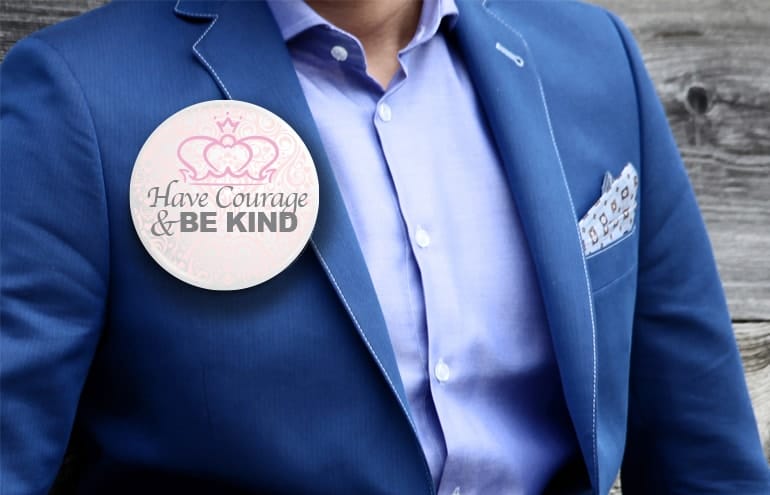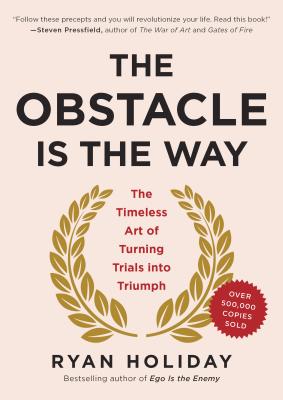“Motto” is a weird word. It developed from late Latin and means a short phrase adopted by an individual as a code of conduct. And you, my pithy reader, need one.
A Personal Motto Has a Purpose
The world is unpredictable. Providence dictates your circumstances with a strange indifferent gleefulness. For instance, you may find yourself in successful circumstances. You might enjoy the effervescent epiphany: “All is good. Everything’s gonna be great!” Then everything shifts and you might find yourself teetering on the edge of a stygian well, thinking: “That’s it. Game over!”
Neither of those fatalistic sentiments helps you in the moment. They are flags of surrender. They don’t offer the faintest whisper of guidance. They don’t inspire you to hang on or encourage you to celebrate cautiously. They don’t do anything. Because they aren’t your motto.
Your motto has a job, a raison d’être, a purpose. Like a well-read Dutch uncle, your motto should:
- Kick you in the ass when you’re idle.
- Draw you into your best future.
- Galvanize your purpose.
But it can’t do any of that if it doesn’t exist.
You Must Write Your Own Motto — and Here’s How
“Think different.” “It’s the real thing.” “Just do it.”
Writing a useful motto is like writing a great slogan or tagline. A slogan writer must ask a critical question: What problem does the product solve? Of course, you’re not a company, nor are you an app, except, well, kind of. You can think of yourself as an app. You have a user interface (your persona). You have input and output (learning and doing). You have singular usefulness (your vocation). Copywriters call this special talent the unique value proposition.
But you’re not a tool. You’re a person. Your unique value proposition isn’t a disruptive new service in a stagnated industry vertical. It’s something nobler, something more human. It’s a virtue. A precept. It’s a mindset that underscores everything you believe, every decision you make.
Your motto is the irreducible truth of who you are and how you move through this world.
Which Brings Us to Motto-Making Philosophy
A motto is about clarity of purpose. To get that clarity, you’ll have to follow the enduring Greek maxim gnothi seauton — know thyself. If you don’t reflect on who you are, then you can’t develop a useful motto. Your mantra is the flag you carry into battle, even when that battle is just your morning commute. Your motto represents who you are, but it’s also a landmark that guides you through tough times.
- Not how do I engage the world, but how should I engage the world?
- Not who am I, but who do I want to be?
- Not what is my legacy, but how do I want to be remembered?
These are not the only or even the best questions to ask when building a motto. But they’re a good start. It comes down to the hardest and most enduring questions of philosophy: Who am I, and why am I here?
If you are one of the rare few who have answered this question or at least come close, you know your purpose. If your profession and your purpose align, then congrats.
If your purpose and your profession are the same, then please call me because I’d like to see that in the wild.
The Most Important Question Is the Hardest to Answer
Is it worth it? Is your purpose, is your commitment, is the thing you do that defines you worth doing? Take a minute. It’s the most important question you may ever ask about your career.
For instance, at my core, I am a storyteller. Whether it’s online, on stage, or in person, my role in this world is to tell stories. It took me a long time to accept that. It took me longer to come to terms with this little nugget of truth: It’s totally worth it. What I do informs, sure, and it entertains, of course. But in my best moments, when the audience has disappeared into the story I’m telling? At that moment, they don’t worry about their troubles. They forget who they are. They are, instead, the hero. At that moment, they feel genuine and profound relief from their daily grind. Is that worth it? Hell yes.
Getting Your Personal Motto Down on Paper
Brevity is, obviously, one of the most important qualities of your motto. It should fit under your name on a business card. It should be tweetable. Apple got it right. So did Coke. So did law firms Williams Parker and Sandberg Phoenix. But this is a personal motto. It’s not directed at your target market. It’s for you. Brevity is important, but you don’t have to reduce it to three words. Five to 10 is about OK, but you’ll probably start with more. A lot more.
Option 1: Map your mind to make your motto.
You know all about mind maps. Or do you? Yep, you’re going to Google “mind maps” and hit 30 million pages and at least nine apps for visualizing an idea. (Look, there are two articles on Attorney at Work, here and here.) But you don’t need any of that stuff. You just need a piece of paper and a pencil.
Ideally, you write the main idea in the center of a page and then add words around it as you think of them. But this is leading the witness. Here’s a better way: Write words anywhere on the page. Anywhere. Any size. The important job here is to get those fleeting images down on paper. As you fill up the page, you’ll get to a point where you feel like you’re done.
Next, fold a new page into thirds. Move all the words from your mind map here.
- The top third is for identity words.
- The middle third is for purpose words.
- The final third is for method words.
(You can disregard my divisions if you think of better ones. Go for it. It’s your motto.)
Now cross out duplicate words. Combine similar words. Do whatever it takes to boil down all that verbiage until you can’t boil it down any further. From this demi-glace of verbiage, you should be able to extract the flavor and texture of your motto.
Option 2: Use your writing superpower.
If mind mapping isn’t your thing, you may be better suited to thinking on paper in regular prose. You already do this in your profession. You write arguments and opinions and mentally edit as you go. Putting ideas down on paper is your superpower. Use it.
Write. Don’t overthink it. Answer all the questions outlined above or answer different questions. Use Proust’s questionnaire. Whatever it takes to get you to drop bulk text onto the page. As with the mind map, there are no wrong words. Allow yourself an unrestricted flow of words.
Writing a motto means telling the story of your life in miniature. This blow-out of self-directed prose is step one. Step two, as in the mind map, is to edit that block of text down to almost nothing. Cross out what doesn’t work, keep what does.
Now rewrite what’s left in a new document. Then reduce that. Keep going until you’re left with a single, brief sentence.
Now fine-tune the results.
You’ve got a sentence. It’s pretty good. But is it right? Read it out loud. Any awkward phrasing will be obvious. Tweak it until it sounds right.
Or You Could Try Latin
My Latin is almost as good as my ancient Sumerian, which means I use Google Translate. Running your rough phrase through a Latin translation engine delivers a cool-sounding motto. Or it doesn’t. Latin is notoriously frustrating and English just doesn’t translate well. For instance, if your motto is “have courage and be kind,” it’s going to translate poorly into animo estote, which does not mean the same thing. Even if you tweak it, the best you can get is animo misericordia, which is not cool. So try finding an actual Latin translator — a friend who is a Jesuit would be very helpful. The Reddit Latin community ain’t nothing to sneeze at (be sure to follow the rules). Reddit r/latin user Mikael-9000 fixed “animo misericordia” to read: “habē virtūtem et es benignus.” Way cooler.
It’s fine if you wing it. It’s your motto. You know what you mean. And Latin is a dead language — no one is going to correct you because no one understands it. I once used credo scutellas volante as my email signature for a month until someone stole it for theirs. They proclaimed unknowingly: I believe flying saucers are real.
 You Can Totally “Borrow” a Motto
You Can Totally “Borrow” a Motto
It’s fine. Yeah, after all this hullabaloo, I borrowed my motto from the movie “Cinderella.” Not the 1950 animated film, but the 2015 live-action film directed by Kenneth Branagh. You’re probably thinking oh, isn’t that sweet, he’s a new father, and no I am not. My kids have their own apartments and jobs and there’s nothing wrong with a grown man liking a moving story about personal transforma … look, I don’t have to explain my love of adorable children’s films to you. Cinderella’s mother calls little Ella to her side and shares this deeply sincere motto for navigating her way through life:
“Have courage and be kind!”
But that’s not the only motto I live by. You can have more than one. While researching this article on Stoicism, I discovered Ryan Holiday’s pithy distillation of Marcus Aurelius’ famous line, “That which impedes the way, becomes the way.” Holiday nutshelled the title of his book as “The Obstacle Is the Way.” That very simple idea changed my life. It challenged me to embrace the hardships I encountered as good fortune. I applied it in the little moments first to test it out. My heavy traffic gesticulation ratio went way down. I looked at unappealing aspects of my life I’d learned to live with and turned them into life goals. I got along better with my kids. I got along better with my dog. I got along better.
And that’s the important thing, right?
Your Motto Should Be a Beacon
It should not merely guide you forward. It should draw you into the future you most desire for yourself. Your motto will define you. It will become how others define you. Make sure it fits.
As a final parting gift, you’re welcome to steal mine: Gravissime, nescio quid agam!
Get more Analog Attorney here.
Illustration ©iStockPhoto.com
Subscribe to Attorney at Work
Help us grow and get really good ideas every day: Subscribe to the Daily Dispatch and Weekly Wrap (it’s free). Follow us on Twitter @attnyatwork.

























